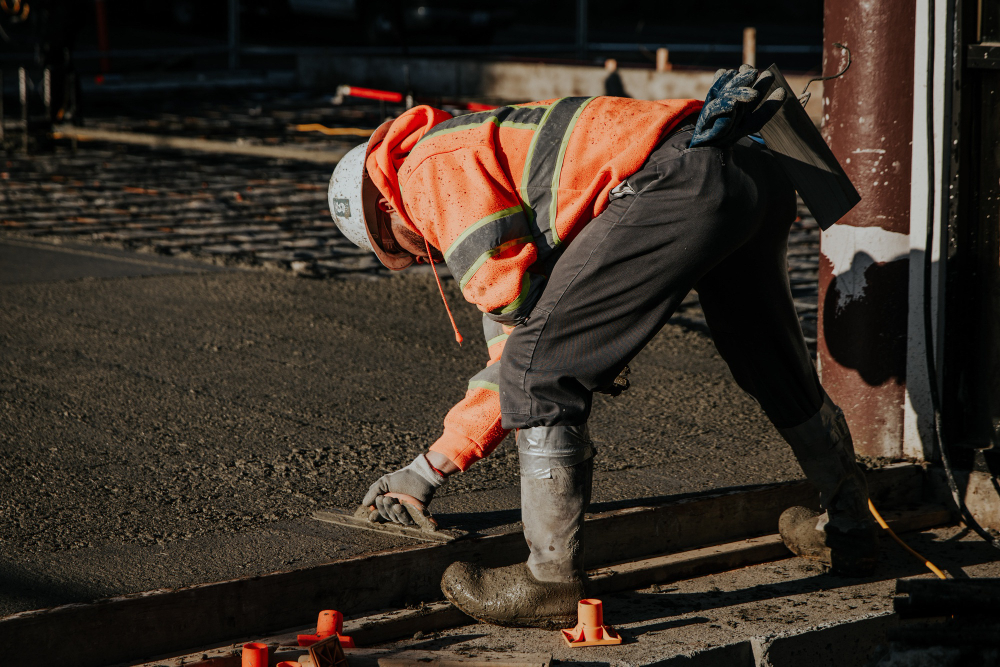When planning a flooring renovation, hiring the right professional is the foundation of a successful outcome. Whether you're remodeling your home, upgrading a commercial property, or building new construction, selecting the right Flooring Contractor is crucial. This guide will help you understand what to look for in a flooring pro, why hiring a specialist matters, and how to ensure your investment pays off with long-lasting, high-quality results.
Why Hiring a Flooring Contractor Matters
Floors play a vital role in the functionality, appearance, and overall value of your property. A poorly installed or finished floor can lead to expensive repairs, safety hazards, and reduced property value. That's why hiring a licensed and experienced Flooring Contractor is more than just a convenience—it’s a necessity.
Professionals bring technical expertise, access to top-tier materials, and the right tools to handle complex flooring projects. They are trained to assess subfloor conditions, properly prep surfaces, and execute precision installations, whether you're working with hardwood, laminate, vinyl, tile, or specialty finishes.
Key Qualities to Look for in a Flooring Contractor
Choosing a flooring contractor shouldn't be a rushed decision. Here are the essential qualities and qualifications you should prioritize:
1. Experience and Specialization
Not all contractors are created equal. Look for professionals who specialize specifically in flooring projects. Experience with different types of flooring materials and styles—hardwood, engineered wood, vinyl, luxury vinyl plank (LVP), tile, or carpet—is a major plus. A seasoned contractor can offer advice on durability, design trends, and cost-effective solutions tailored to your needs.
2. Licensing and Certification
Ensure that the contractor is licensed and bonded according to your state or local regulations. Certification from professional organizations such as the National Wood Flooring Association (NWFA) or similar industry groups can be an additional sign of credibility.
3. Portfolio of Past Work
Ask to see a portfolio or gallery of completed flooring projects. Look for consistency in craftsmanship, attention to detail, and a variety of installations. This not only shows experience but gives you design inspiration and confidence in their work quality.
4. Customer Reviews and References
Reputation matters. Check online reviews on platforms like Google, Yelp, and the Better Business Bureau (BBB). Also, request references from previous clients to ask about their experience, especially regarding timeliness, communication, and problem-solving.
5. Clear and Transparent Quotes
A trustworthy flooring contractor will provide a written, itemized quote. This should include details on materials, labor, estimated time for completion, and payment structure. Avoid vague pricing or contractors who require full payment upfront.
6. Warranties and Guarantees
Ask about workmanship warranties and manufacturer guarantees for materials. A quality contractor stands behind their work and will address issues that arise due to faulty installation.
Questions to Ask Before Hiring a Flooring Contractor
When interviewing potential contractors, come prepared with specific questions to assess their suitability:
- What types of flooring do you specialize in?
- Are you licensed, bonded, and insured?
- Can you provide recent customer references?
- What is the estimated timeline for my project?
- Do you handle old floor removal and debris disposal?
- How do you ensure subfloor preparation is done properly?
- Do you offer any post-installation maintenance tips or support?
The Flooring Installation Process: What to Expect
Understanding the general process can help you stay informed and make smarter decisions along the way. While each project is different, here’s a typical workflow:
- Initial Consultation and Estimate
- The contractor evaluates your space, discusses material options, and provides a detailed quote.
- Flooring Selection and Procurement
- You choose your flooring material, whether it’s hardwood, laminate, or vinyl. Many contractors offer samples or showroom visits.
- Site Preparation
- Old flooring is removed, and the subfloor is cleaned, leveled, or repaired as needed.
- Installation
- The new floor is installed according to manufacturer specifications. This may involve nailing, gluing, or floating methods.
- Finishing Touches
- Transitions, trim, and baseboards are added. The area is cleaned and inspected.
- Final Walkthrough
- You’ll review the work with your contractor and confirm everything meets your expectations.
Common Flooring Mistakes to Avoid
Even with a professional on your side, avoid these pitfalls to ensure a smooth project:
- Choosing the cheapest quote without verifying credentials
- Overlooking the importance of subfloor preparation
- Not asking about moisture protection or sealing
- Ignoring maintenance requirements of different materials
The Cost of Hiring a Flooring Contractor
The total cost of hiring a Flooring Contractor varies depending on several factors:
- Material Type: Hardwood is more expensive than vinyl or laminate.
- Square Footage: Larger areas increase material and labor costs.
- Subfloor Repairs: Uneven or damaged subfloors may require extra prep work.
- Location: Rates can vary by region and availability of contractors.
On average, expect to pay anywhere from $6 to $12 per square foot, including materials and labor, for mid-range flooring options. Always get at least three estimates to compare costs.
Benefits of Hiring a Professional Flooring Contractor
- Quality Assurance: Professionals adhere to building codes and manufacturer specs.
- Time Efficiency: Projects are completed faster with fewer delays or mistakes.
- Increased Home Value: Professionally installed floors can significantly boost resale value.
- Peace of Mind: Warranties and insured labor protect your investment.
Final Thoughts
Your flooring is more than just a surface—it’s a key element of your home’s style, safety, and function. By carefully vetting and hiring the right Flooring Contractor, you can ensure a high-quality, stress-free installation that stands the test of time. Don’t rush your decision. Take time to research, ask the right questions, and choose a contractor who meets your standards for professionalism, experience, and customer service.
With the right partner, your next flooring project can transform your space and add long-term value to your property.





Comments